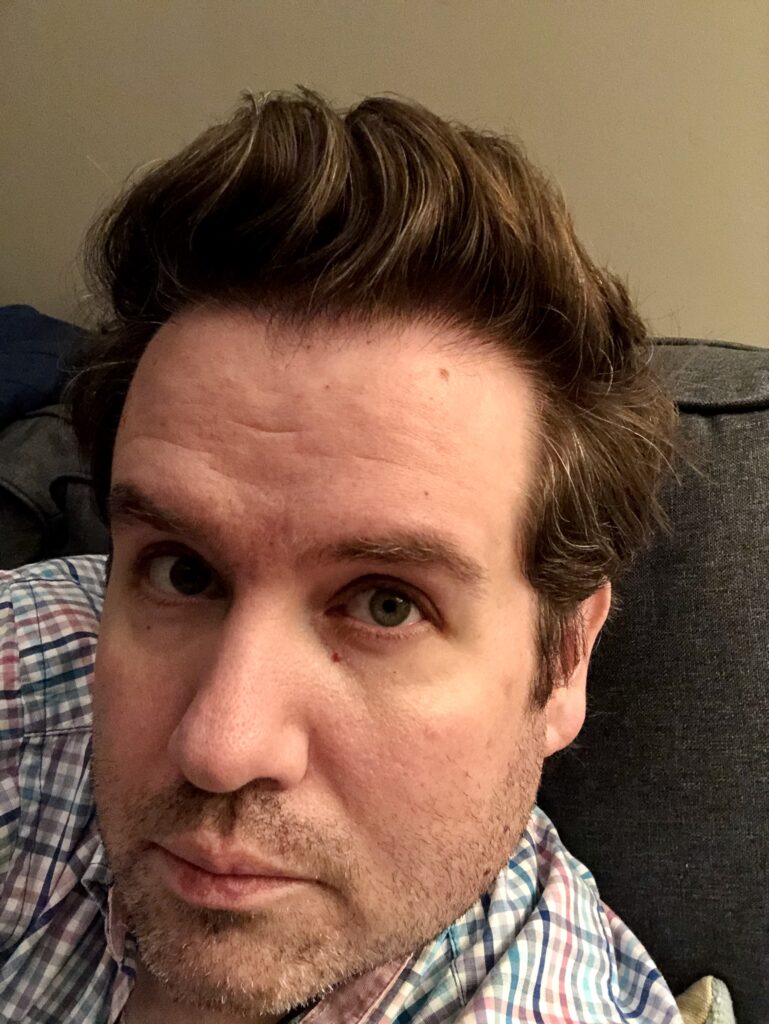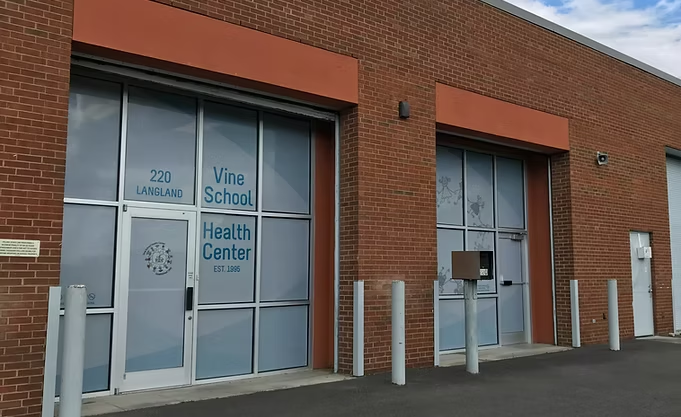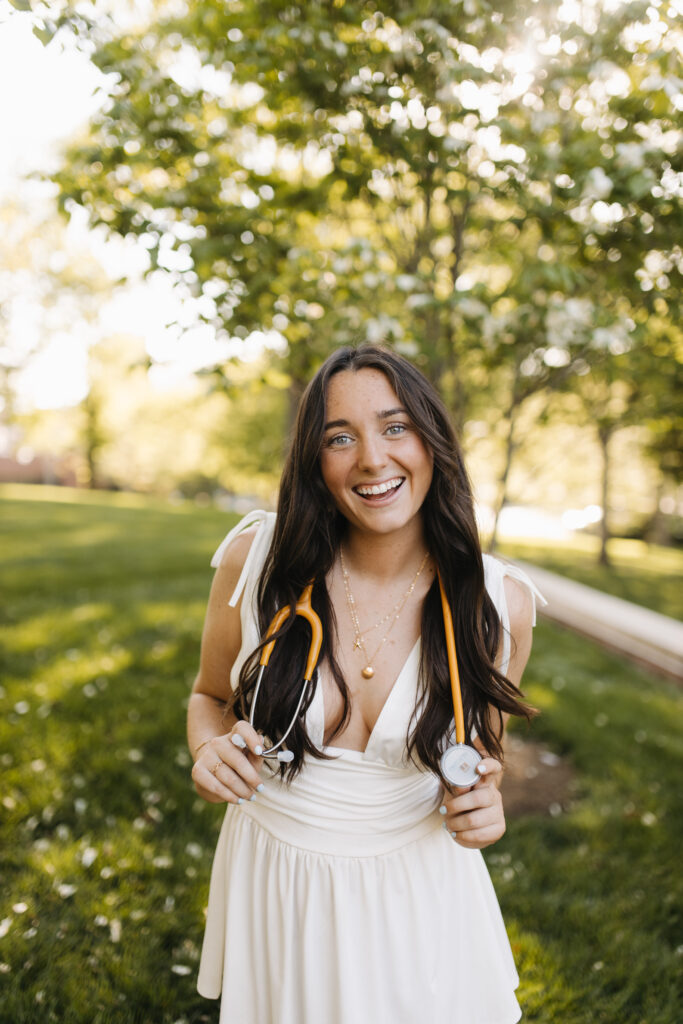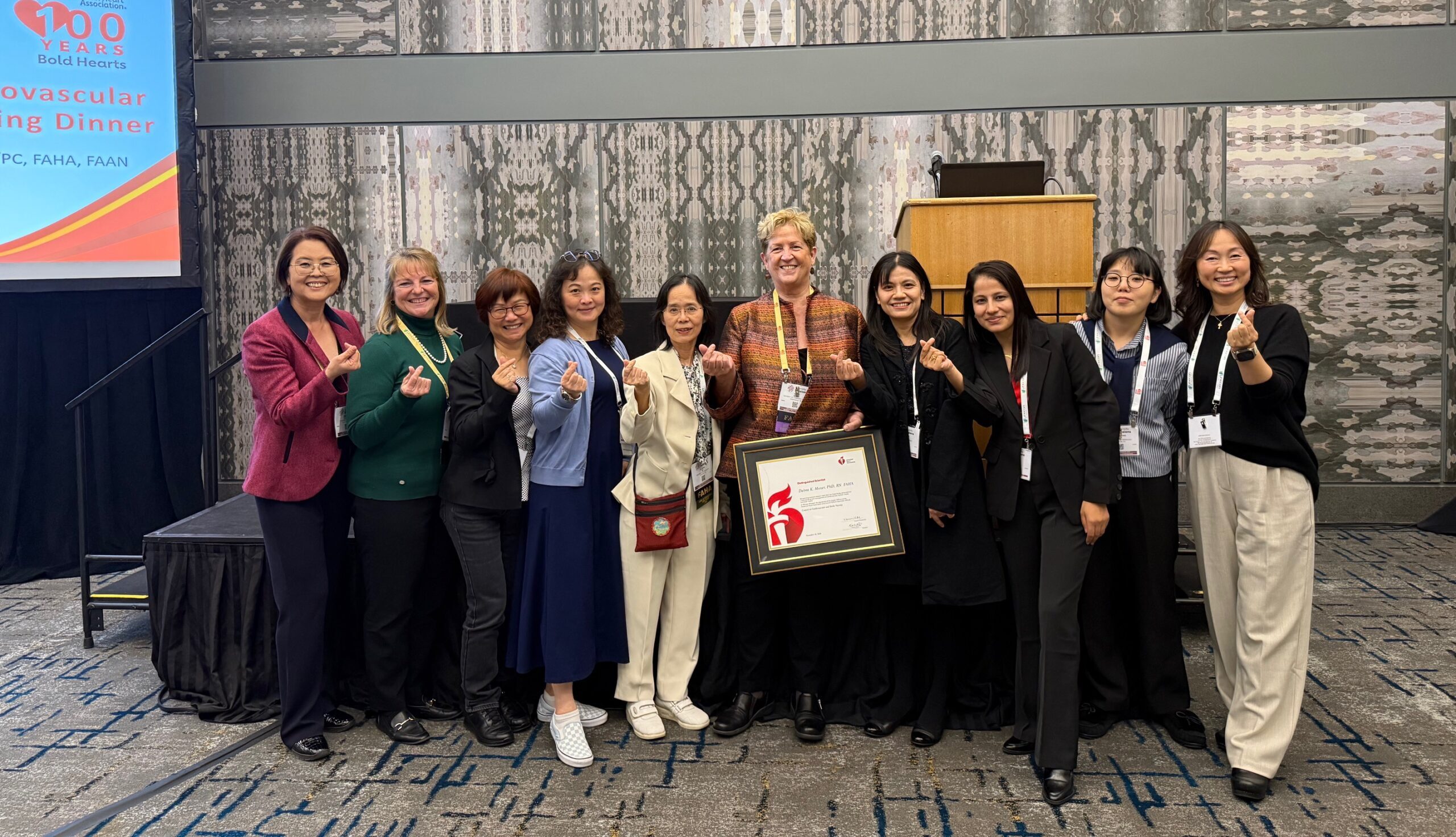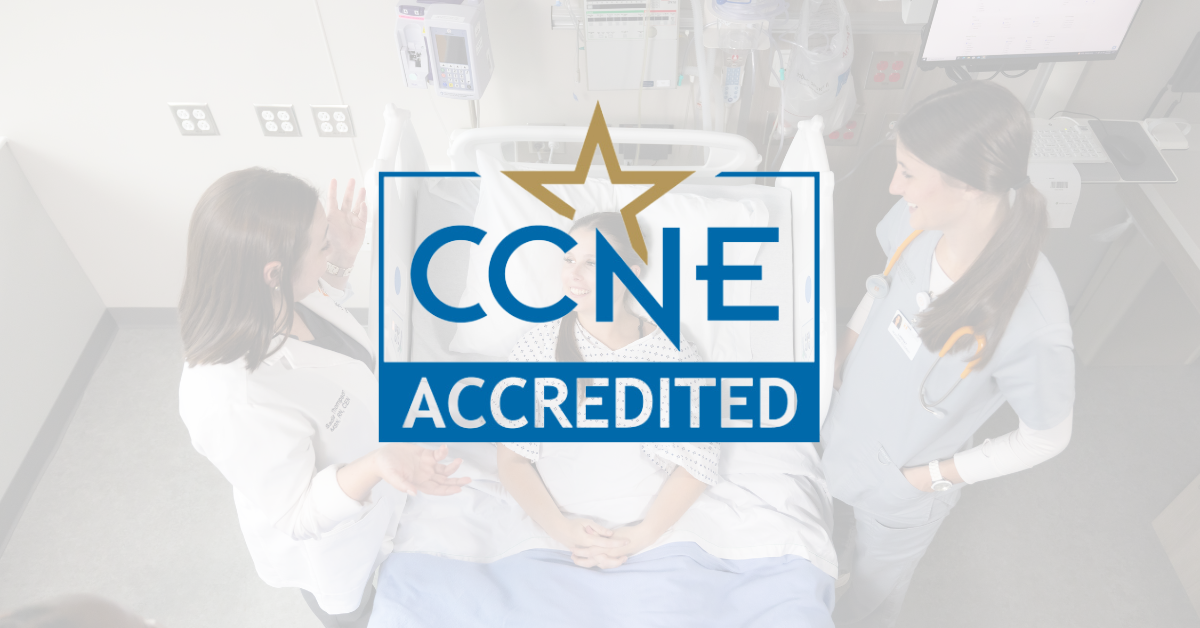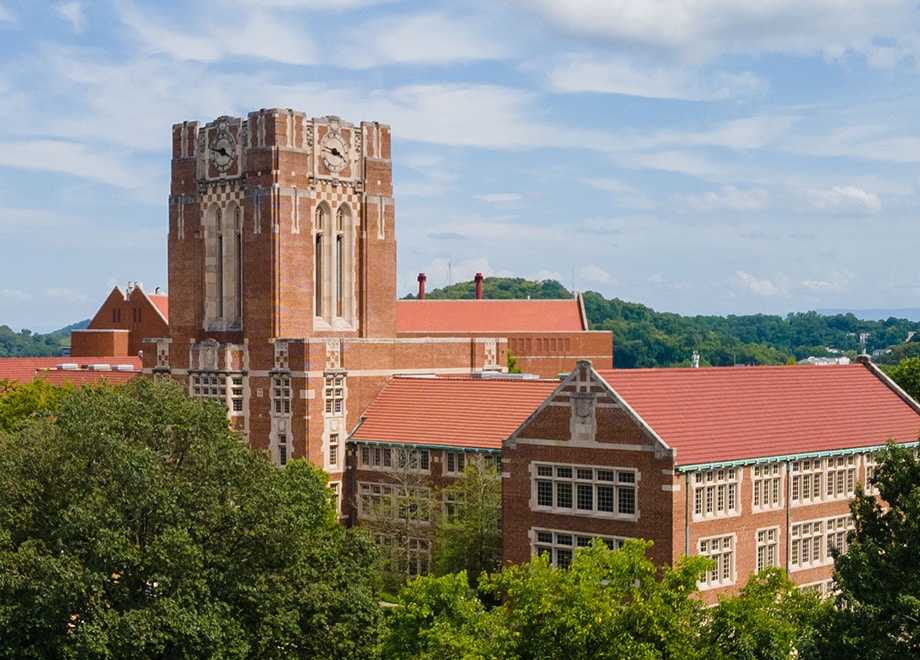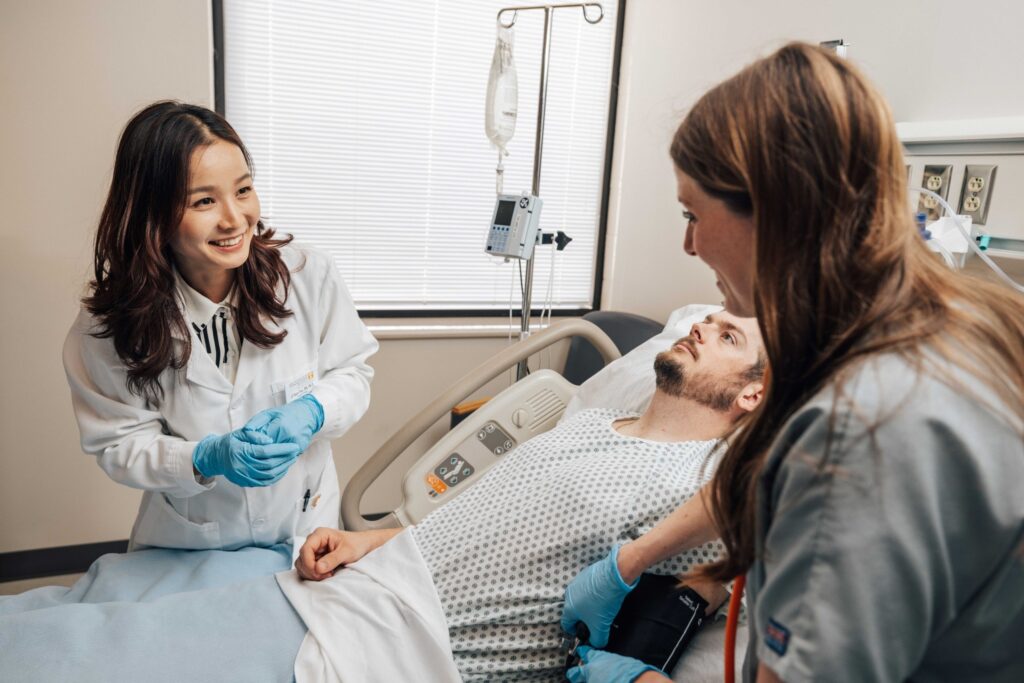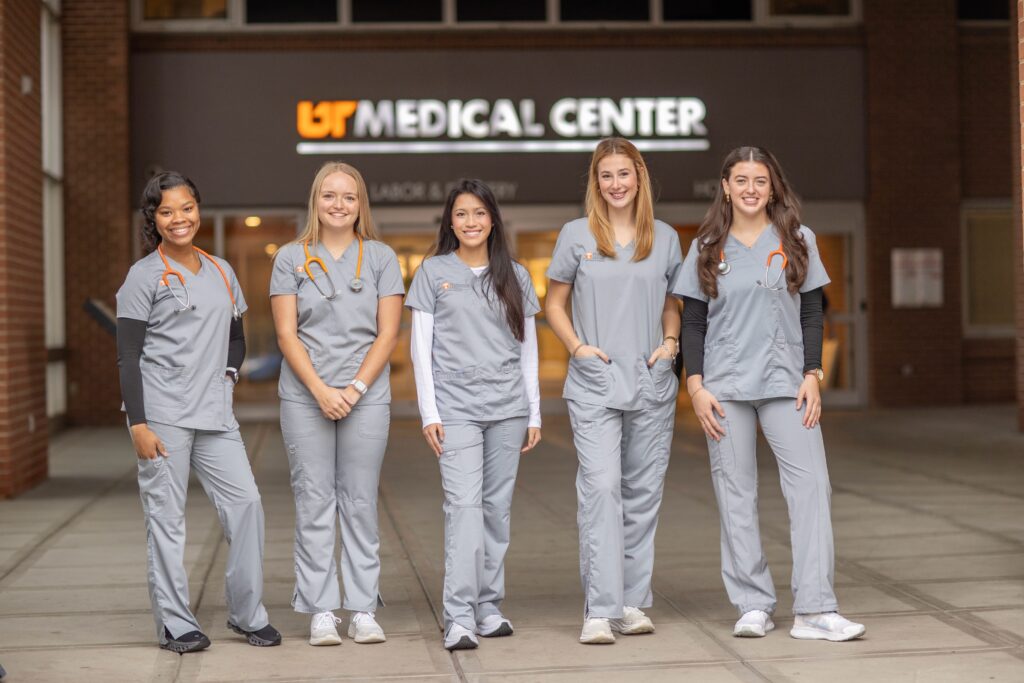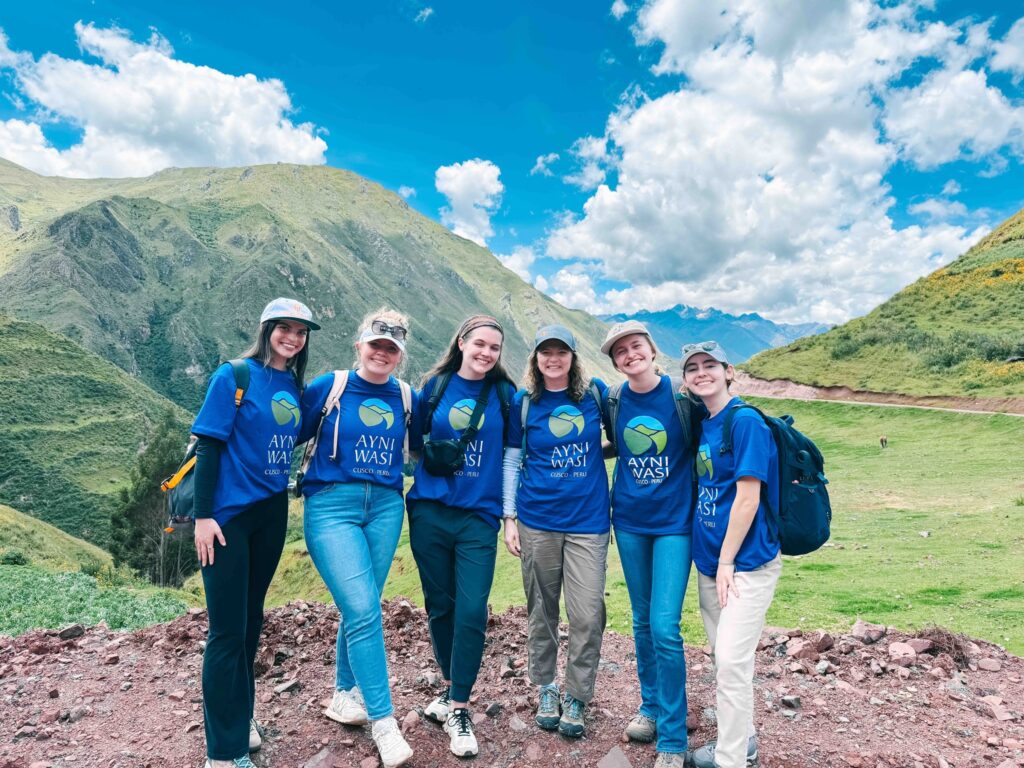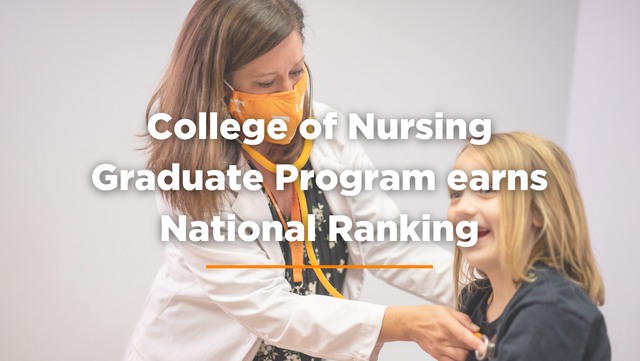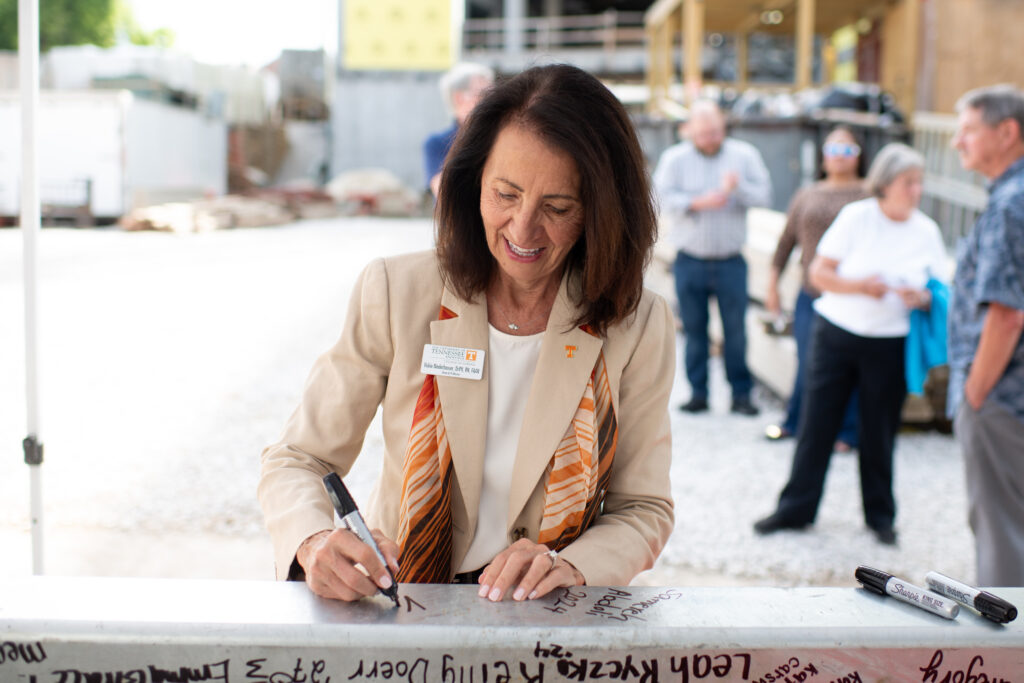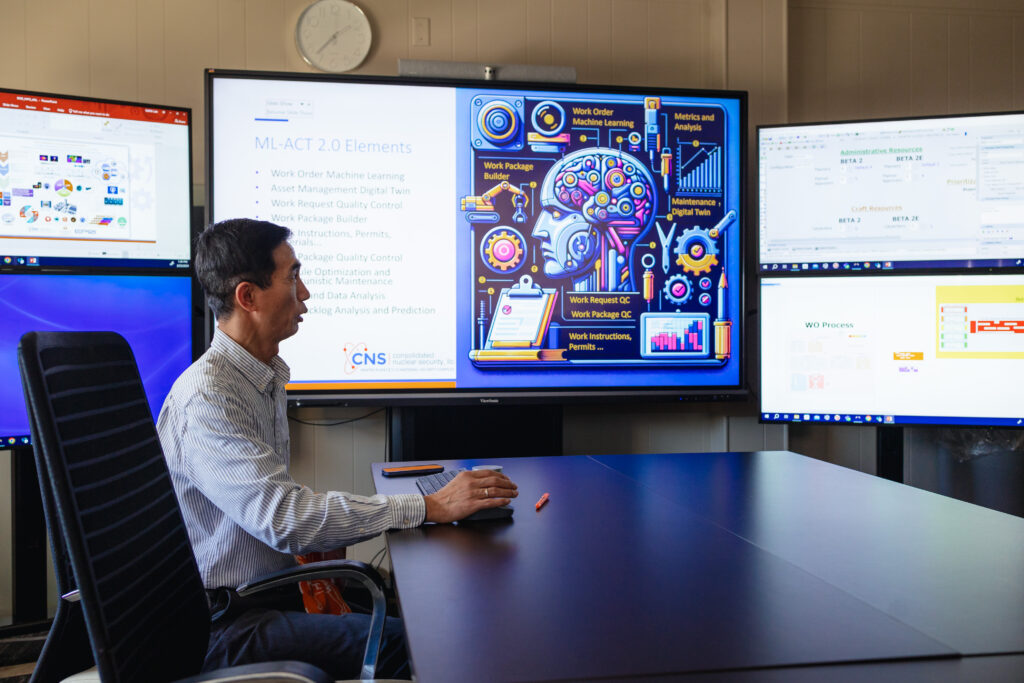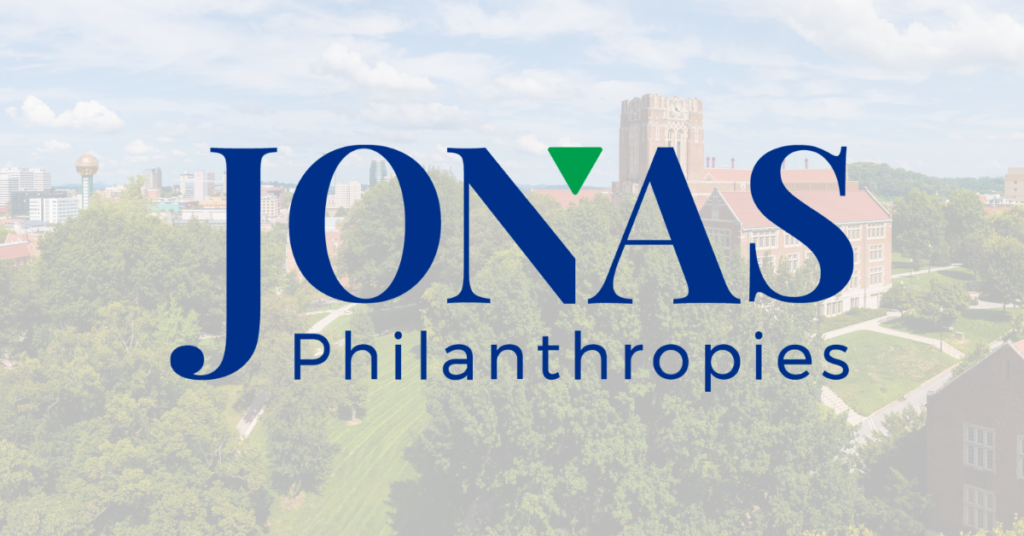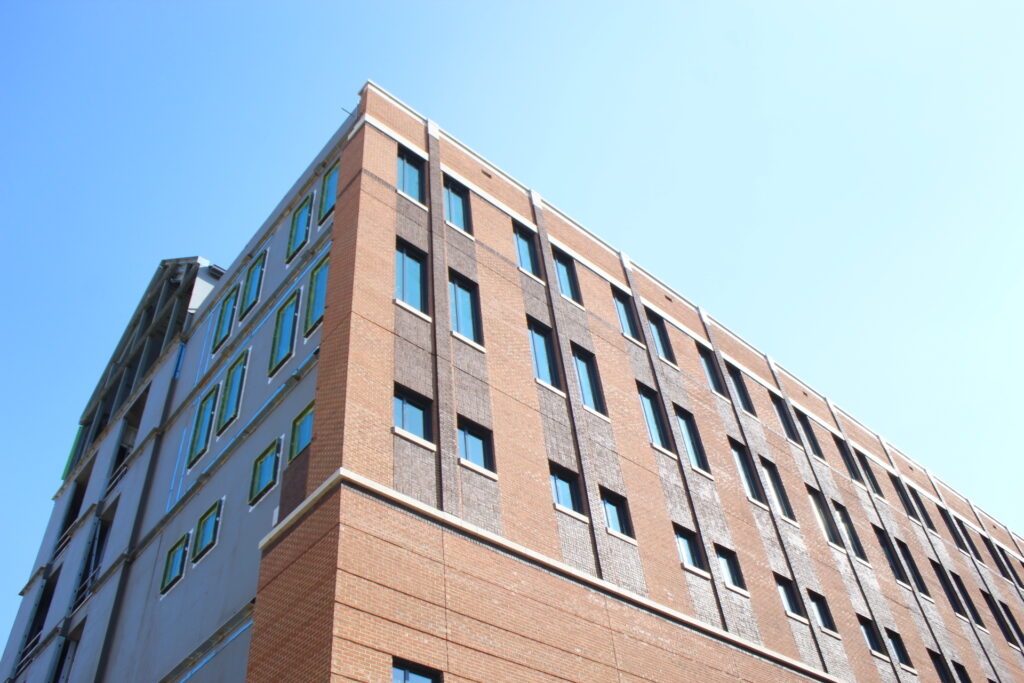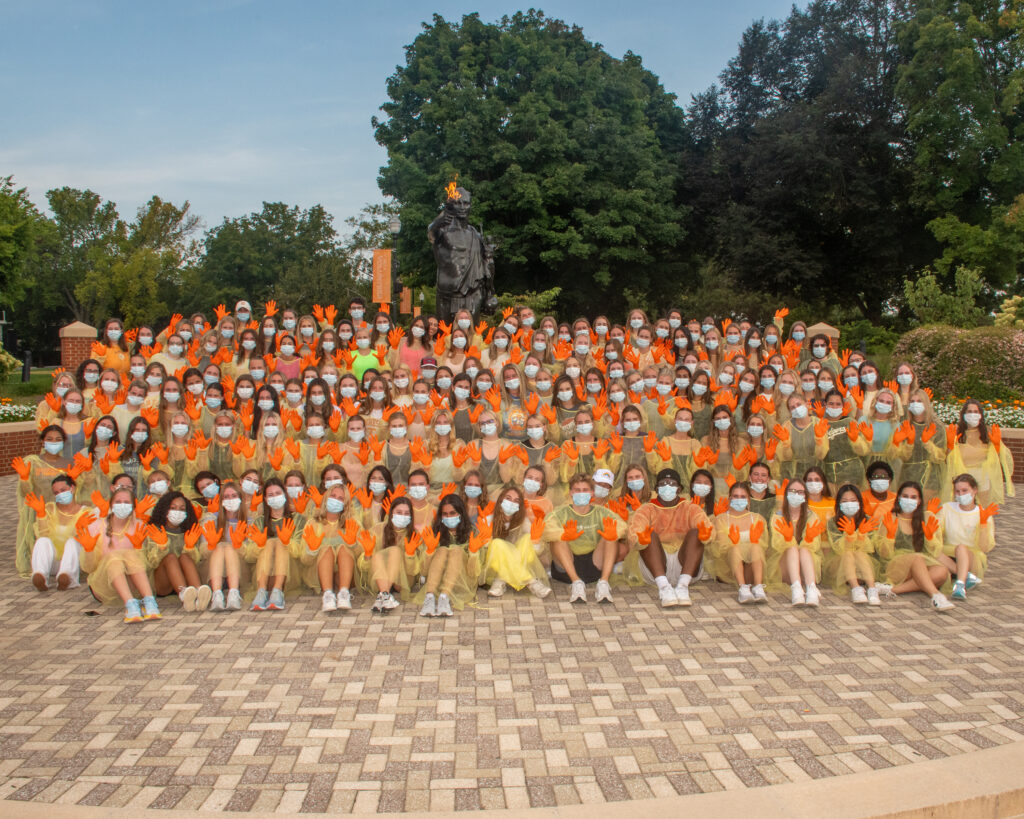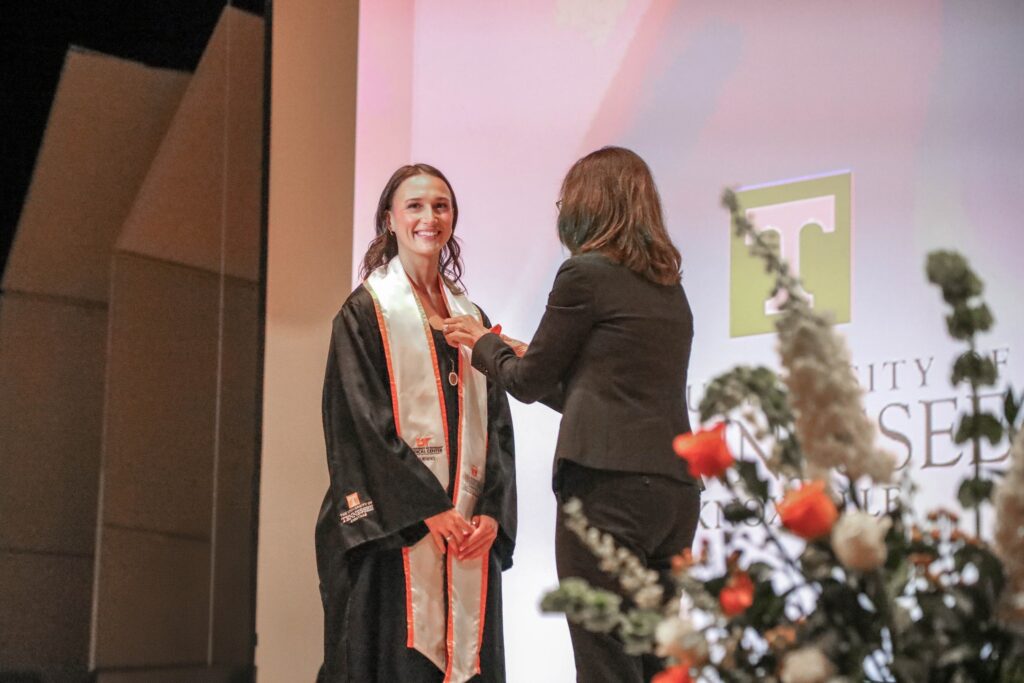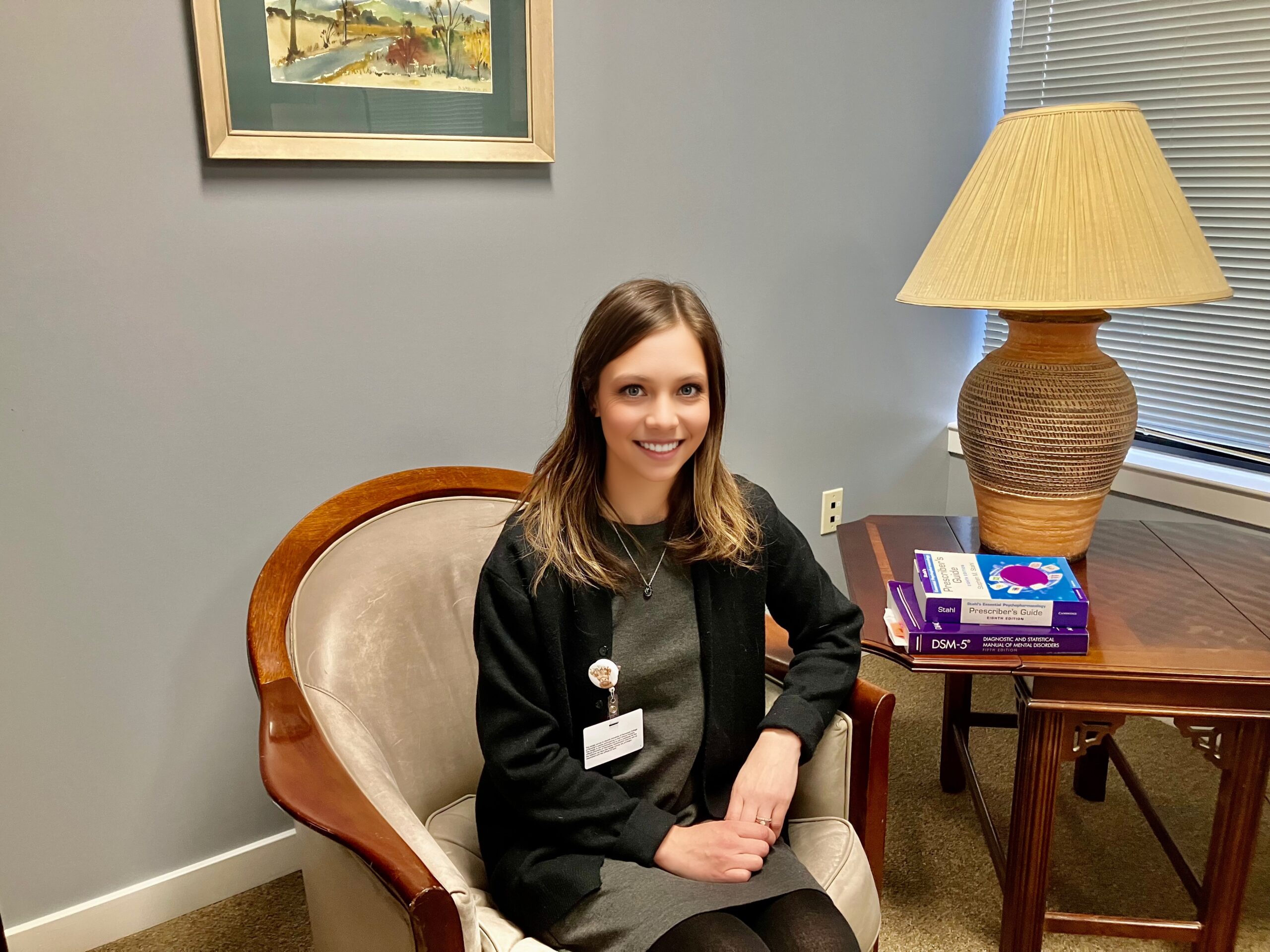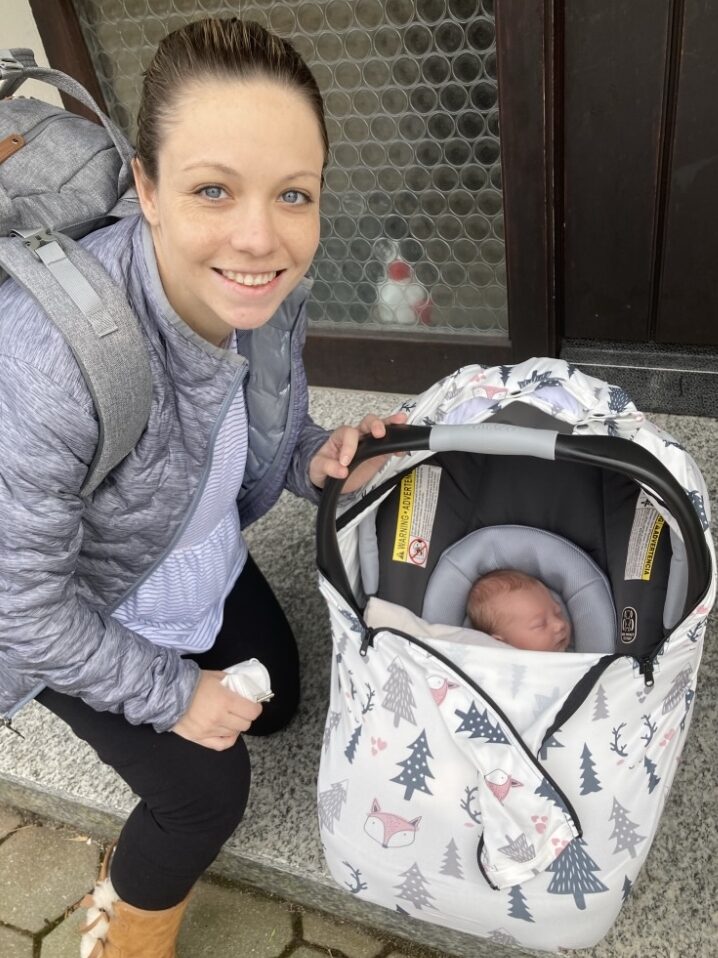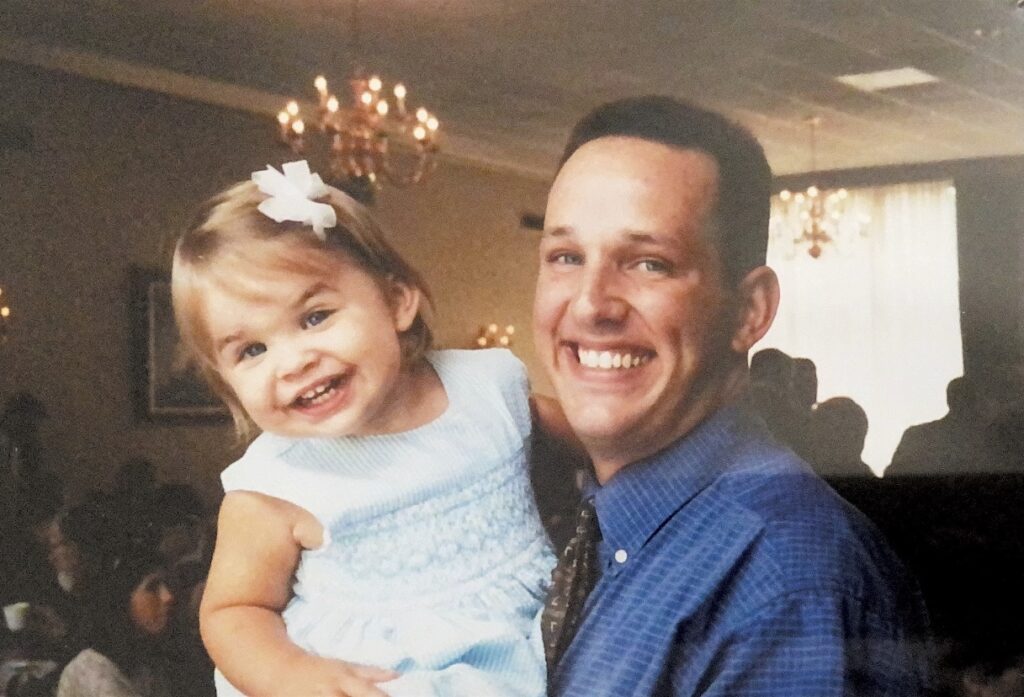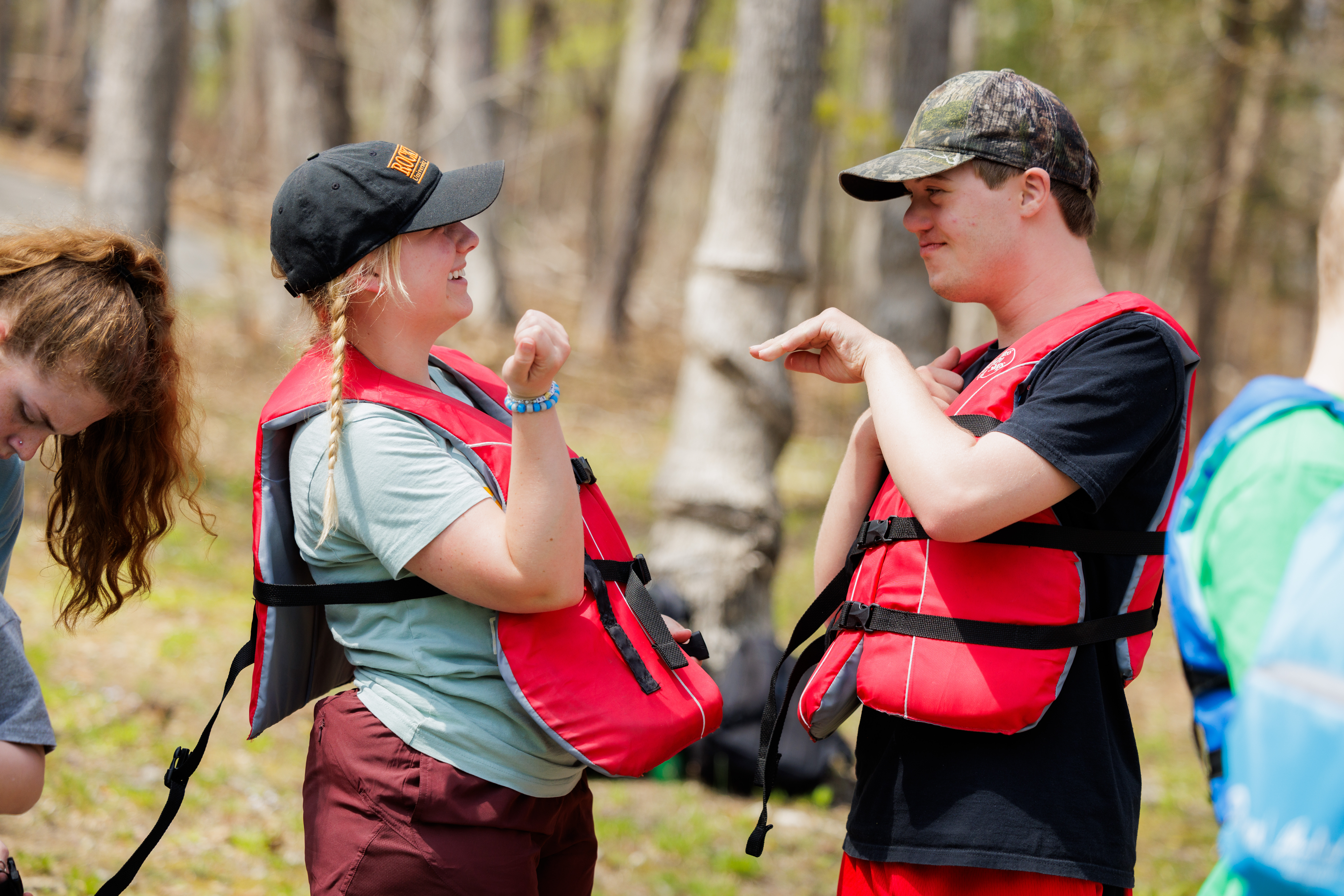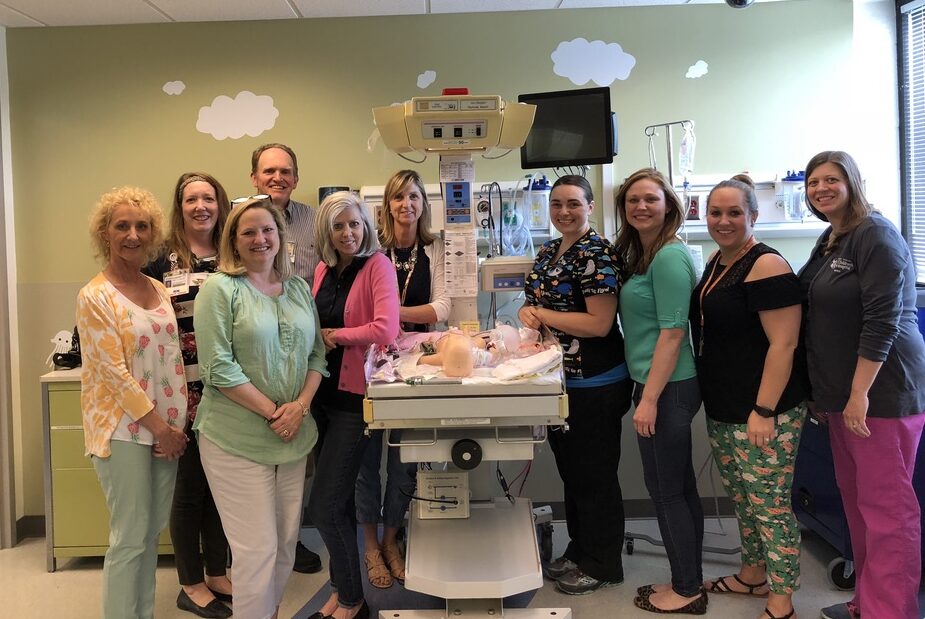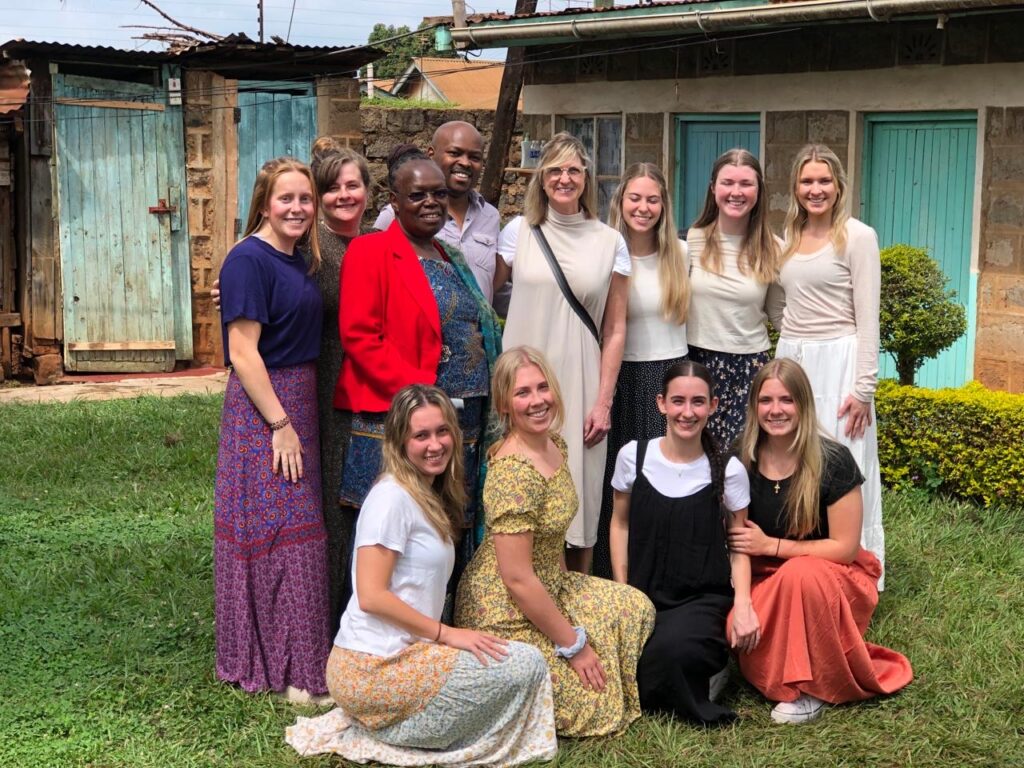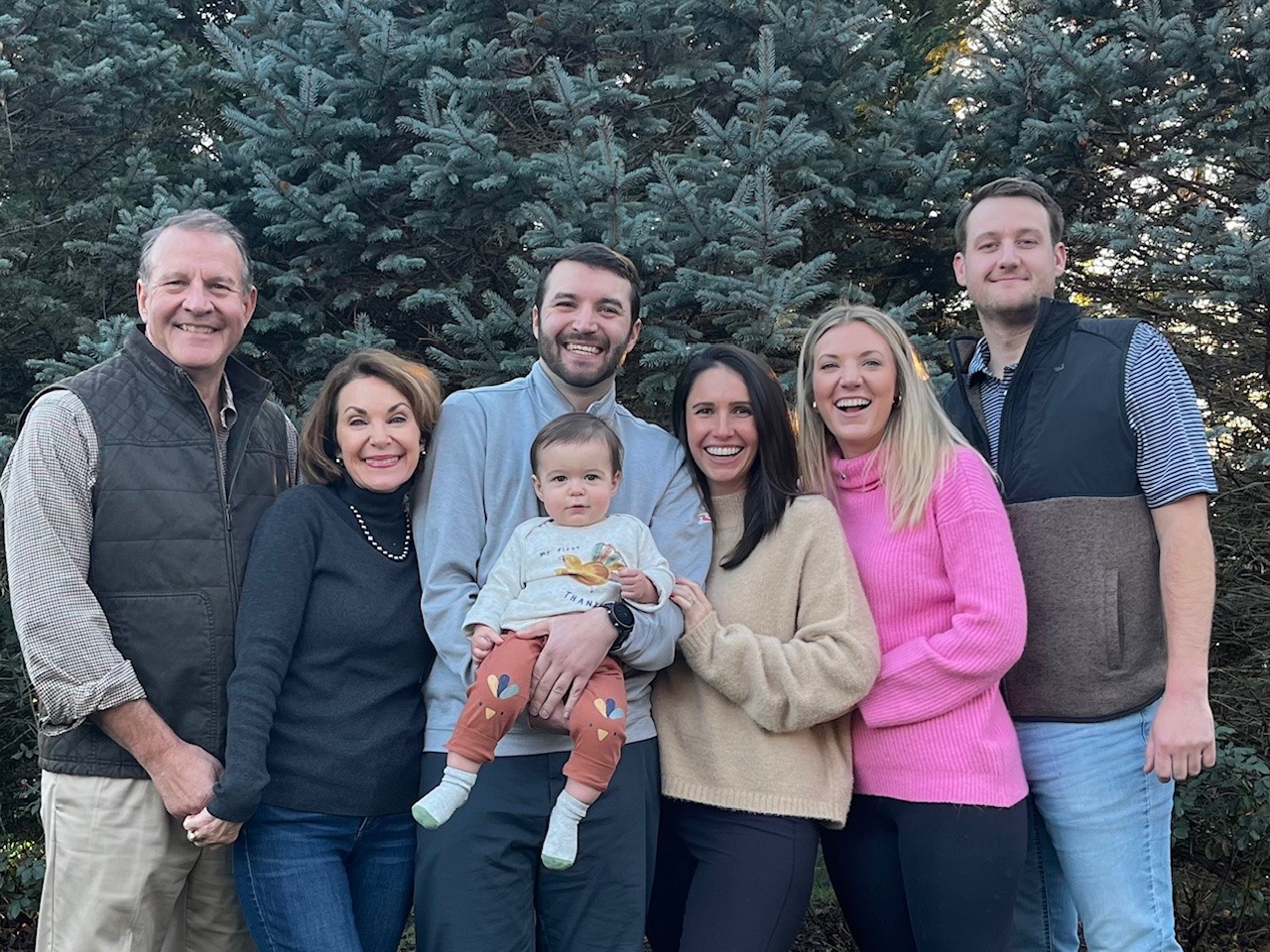Grace Gardner’s path to becoming a nurse has been shaped by one thing in particular, resilience.
Gardner recalls the first time she surrounded by nurses. She was seven years old, in the hospital, waiting on her baby brother to be born.
“After witnessing the nurses in that setting, and again when my grandmother got sick in 2014, I decided I wanted to provide care to people like they did,” shared Gardner.
It was never a doubt in Gardner’s mind where she wanted to go to school. Her dream was to become a Vol Nurse, just like her aunt Lisa Reed. Reed serves as chair of the college’s Advisory Board, and President of the Alumni Board of Directors.
“Tennessee has always been in the family,” added Gardner. “Our whole family bleeds orange, so it was never a question in my mind.”
Gardner was ecstatic when she received her acceptance letter into the college. She began her journey on Rocky Top in the fall of 2018. She joined Zeta Tau Alpha and enjoyed spending her free time doing community service and attending chapter events.
As Gardner approached her junior year, the COVID-19 pandemic hit. This was also the start of nursing courses for Gardner, and due to the change in class format, she missed the required grade for her pharmacology course. This caused her to need a fifth year to complete her studies.
“It was hard to accept that I wasn’t graduating on time, but now I realize that it was a blessing,” she adds.
In the summer 2022, Gardner’s life changed forever. Her father, who had been battling a rare condition called Frontotemporal dementia (FTD) that worsened rapidly, passed away. Just five weeks later, her grandfather died.
It was a double loss that sent shockwaves through her family, and Gardner, in the middle of her nursing studies, was suddenly forced to navigate grief while finishing one of the most challenging academic programs in the country.
“It was one of the hardest times of my life,” Gardner remembers. “He was always the one who believed in me when I didn’t believe in myself.”
Her father’s illness had been a long and painful journey for the family. His condition worsened quickly after his initial diagnosis in 2018.
“I remember thinking that we still had time with him,” Grace recalls.
Her father’s death hit Gardner hard. She remembers the moments when he would encourage her to keep going, even when she doubted her ability to succeed. “He always told me, ‘You’re going to be a great nurse, Grace. You’ve got this,’” she says. “Whenever I felt like I couldn’t handle the workload, he would remind me of my passion for nursing and push me to keep going.”
Throughout this incredibly difficult period, Gardner leaned on the support of her family, friends, sorority sisters and her nursing faculty.
“I knew my dad would’ve wanted me to finish strong,” she reflects. “He was so proud of me, and I wanted to honor that pride by giving my best, even though it was one of the hardest years of my life.”
Her father’s passing deepened her sense of empathy and understanding as a nurse.
Now a graduate working at Tristar Centennial Women’s Hospital in Nashville, Gardner has faced challenges that would have derailed many. But through loss, she found strength—and a purpose in the nursing field.
Working in women’s health has deepened Gardner’s passion for patient care, particularly in fertility, which holds personal significance for her family. Gardner hopes to one day become a fertility nurse practitioner, specializing in genetic screening and fertility treatments.
“My family’s experience with genetic health issues has really opened my eyes to how important fertility care can be,” she says. “My dream is to help families like mine, who are navigating tough decisions and trying to stop genetic conditions from being passed on to future generations.”
To future nursing students, Gardner offers a piece of advice born from her own experience: “Don’t be afraid to take your time. Life doesn’t always go according to plan, and that’s okay. Lean on the people who love you and remember why you started. Nursing is about caring for others, but it’s also about caring for yourself. And sometimes, that means giving yourself grace.”
_____
CONTACT:
Kara Clark (865-974-9498, [email protected])
